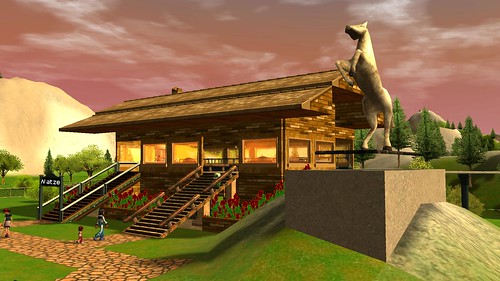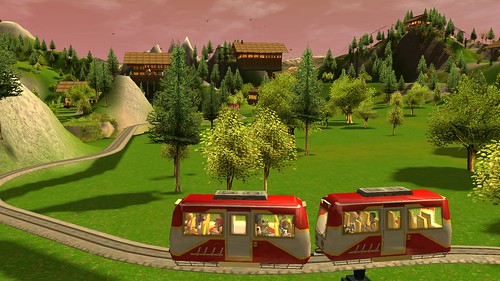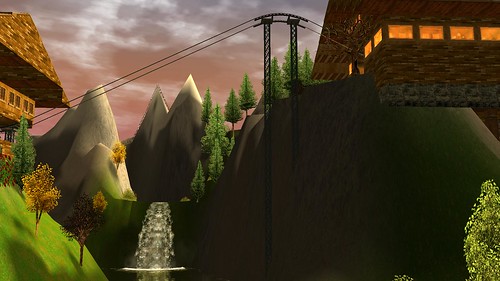Für sie persönlich hat das die Konsequenz, dass sie wahrscheinlich bis ins kleinste Details gelernt haben, wie der Staat funktioniert und wie sie ihre Wahlzettel korrekt ausfüllen, aber nicht, wie sie die Steuererklärung ausfüllen müssen. Oder einen Versicherungsantrag. Oder welche Versicherungen überhaupt sinnvoll sind und welche nicht, und warum. Und sie lernen vor allem nicht, wie sie das ganze Sinnvoll verwalten – am ehesten lernen sie das noch von Peter Zwegat auf Sat1. Seinen Klienten ist eigentlich stets eines gemein, sie sind alle an ihrem „Papierkram“ verzweifelt und selten durch ein einzelnes, furchtbares Ereignis in die Schuldenfalle geraten, sondern weil sie oft unmerklich, mehr ausgegeben haben, als sie es sich leisten konnten, oft unvorsichtig Kredite aufnahmen und jede Übersicht verloren. Deshalb ist stets das erste, was Zwegat tut, sich den ganzen, oft völlig unsortierten „Papierkram“ geben zu lassen und dann die Klienten erst einmal für ein- , zwei Monate mit der Aufgabe zurück lässt, sich über ihre Alltagsausgaben Gedanken zu machen. Wenn er dann nach dieser Zeit zurückkommt, hat er die Unterlagen sortiert, herausgefunden was sie eigentlich alles an Versicherungen, Sparverträgen, Krediten, Abonnements und anderen, auch unregelmässigen Verbindlichkeiten haben, bereitet er ihnen seine Erkenntnisse auf einem Whiteboard auf, Rechnet die geschätzten Alltagsausgaben dazu und zeigt Ihnen so, wie sie, oft unwissentlich und unnötig, über ihre Verhältnisse gelebt haben und wo sie nun tatsächlich stehen. Die schockierten Gesichter sind stets Highlight für das Reality-TV-Publikum. Besonders freut es die Zuschauer, wenn gerade Leute mit einem, nach allgemeinem Verständnis, gutem Einkommen, so enden.
Umgekehrt gibt es die Alltagsmillionäre, und davon gerade in Deutschland nicht gerade wenige, die diese Rücklagen dadurch aufbauen konnten, dass sie stets mit ihrem Geld zu haushalten wussten. Was nicht bedeuten muss, dass sie extrem enthaltsam und geizig gelebt hätten, aber einen Ferrari werden sie im Normalfall auch nicht in ihrer Garage finden. Diese Menschen geniessen den Luxus der Sorgenfreiheit viel mehr. Ein Ferrari bringt eher das gegenteilige Lebensgefühl. Die meisten Ferraris stehen sich kaputt, weil die Besitzer es kaum wagen, mit dem teuren Gefährt am gefährlichen normalen Strassenverkehr Teil zu nehmen. Ähnlich wie die meisten Menschen nicht durch ein einzelnes Ereignis in die Überschuldung geraten, so sind diese Menschen nicht durch einen einzelnen Glücksfall wie ein Erbe oder ein Lottogewinn wohlhabend geworden, sondern weil sie die Übersicht über ihre Finanzen behalten konnten, über genügend Wissen verfügten, um unnötige Ausgaben oder schlechte Sparformen zu vermeiden und über lange Zeit immer etwas weniger Ausgaben, als sie Einnahmen.
Im Gegenteil, gerade Menschen die kurzfristig zu viel Geld gekommen sind, sind die Käufer von Luxusgütern wie Ferraris, und viele enden schon nach kurzer Zeit ebenfalls in der Überschuldung, die entsprechenden Geschichten über Lottogewinner hört man des Öfteren – und wieder ist es die mangelnde Übersicht und das fehlende Wissen um den langfristigen Umgang mit Geld, der eigentlich gar nicht so kompliziert ist, wenn man ihn denn nur gelernt hätte.
Betrachtet man kleine- und mittelständische Unternehmen, so findet man ähnliche Fälle doch eher selten, doch das liegt mehr daran, dass schon wenige Fehler hier zum aus des Unternehmens führen, Personen dagegen müssen mit den Konsequenzen mindestens ihre eigene Lebenszeit leben, und oft wirkt es sich ja auch, im guten wie im schlechten, auf zukünftige Generationen aus. Unternehmern stehen heute vielfältige Lösungen zur Verfügung, damit ihr Unternehmen nicht ausgerechnet daran scheitert, eine davon raffinierte Softwarelösungen mit so imposanten Bezeichnungen wie Enterprise Ressource Management (ERP, Unternehmens-Ressourcen-Verwaltung), Customer Relationship Management (CRM, Kunden-Beziehungs-Verwaltung) oder Document Management Systems (Dokumenten-Verwaltungs-Systeme, oft auch CMS – Content Management System) und viele mehr. Für Privatanwender gibt es dagegen meist nur rudimentäre Insellösung zum Onlinebanking, der Verwaltung der Haushaltskasse (oft einfache Excel-Vorlagen) oder Online-Auktions-Rundum-Wohlfühlpakete (ERP). Bei der Verwaltung von Dokumenten (DMS) wird man mehr oder weniger sogar vollends im Stich gelassen und die Kontaktverwaltung findet im Mobiltelefon statt (CRM).
HomeS nun versucht das zu ändern, und nicht nur die Werkzeuge zu bieten, ihre Finanzen und ihren „Papierkram“ in Ordnung zu halten, sondern auch, wo immer sie es wünschen und brauchen, an die Hand zu nehmen, zu unterstützen und zu motivieren.




